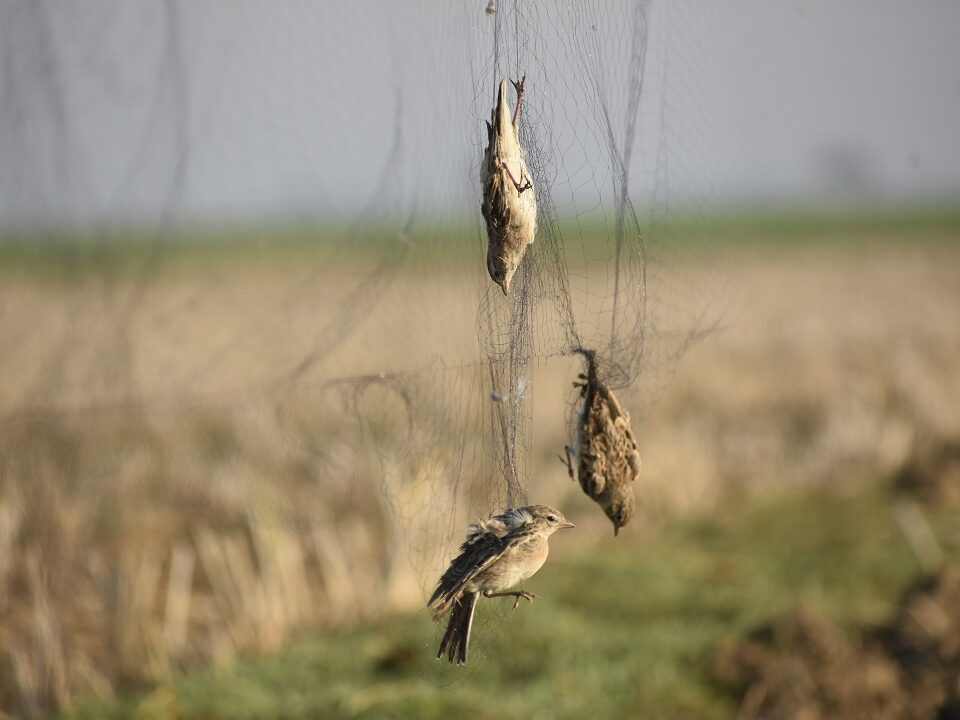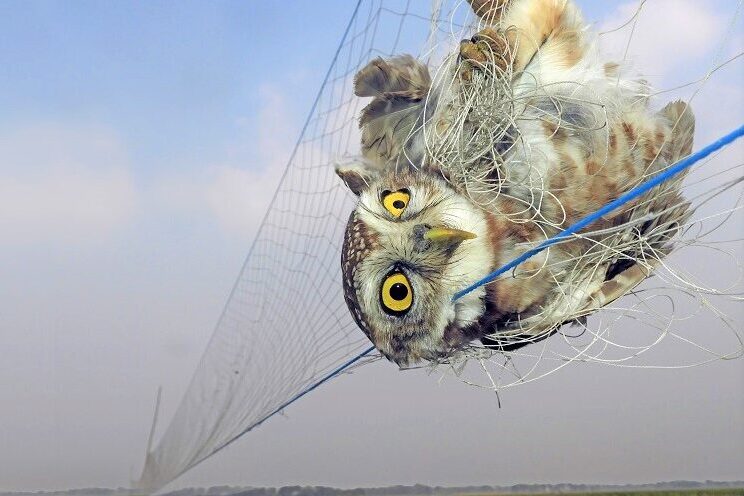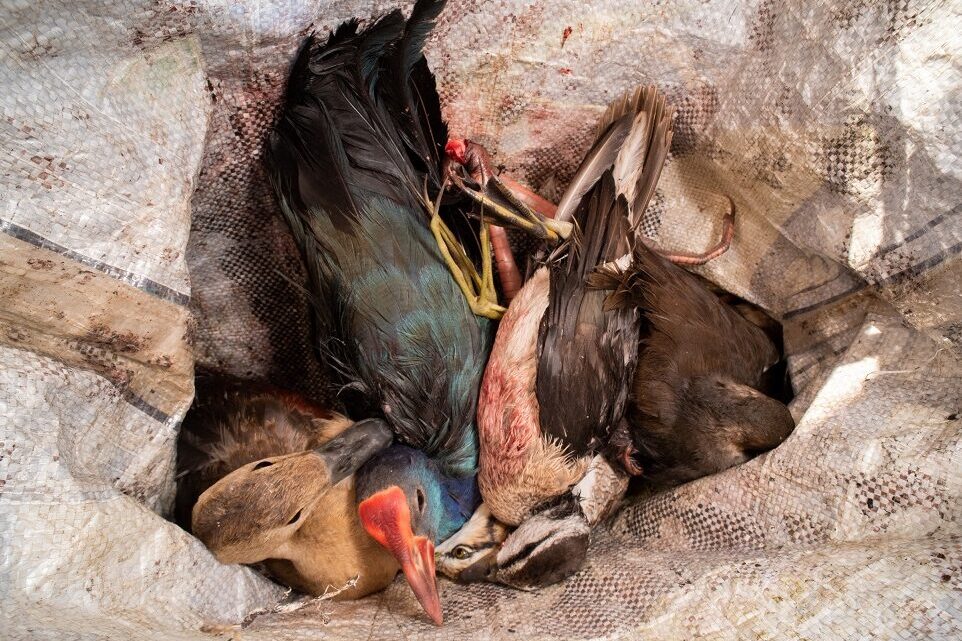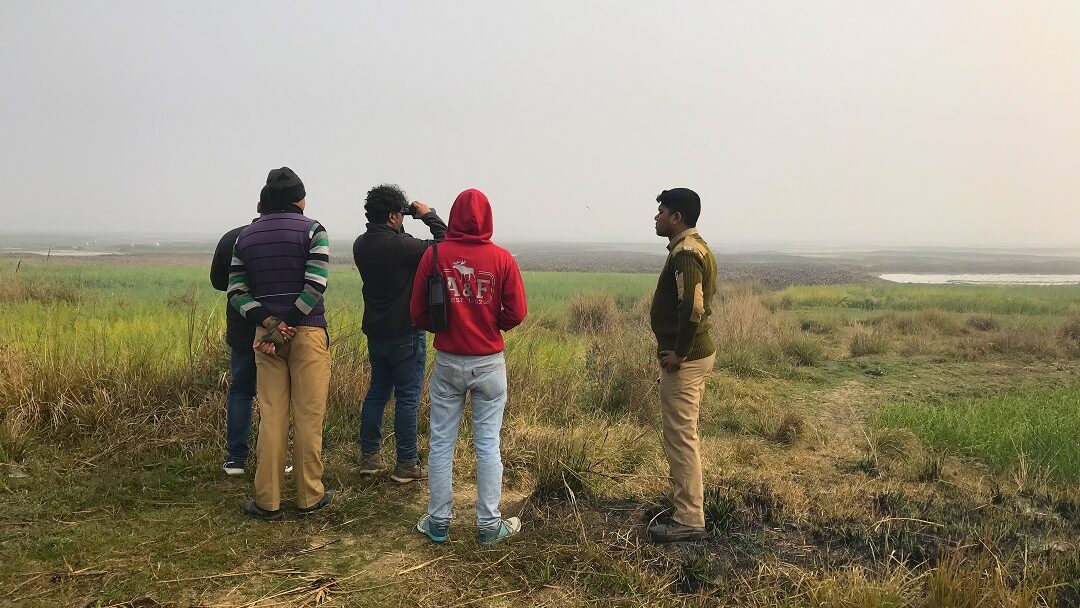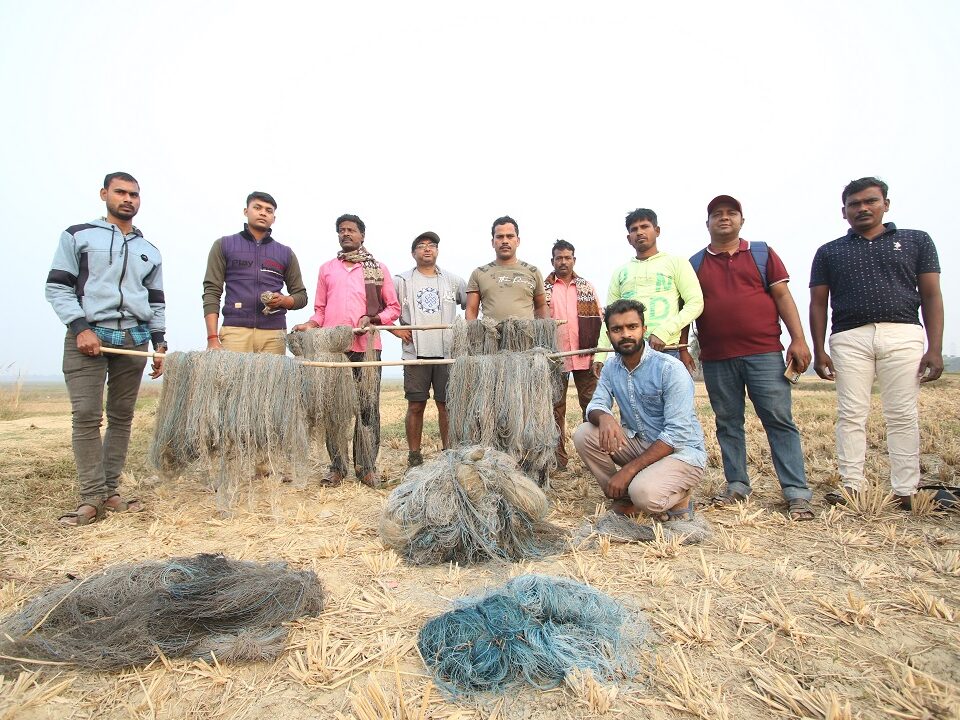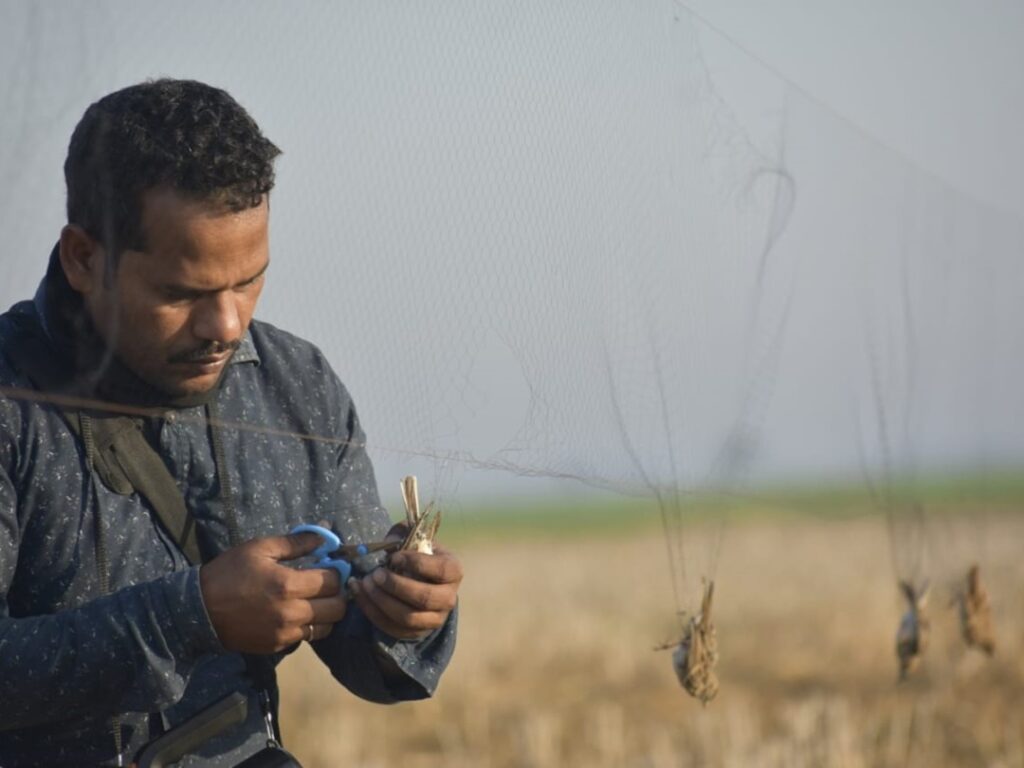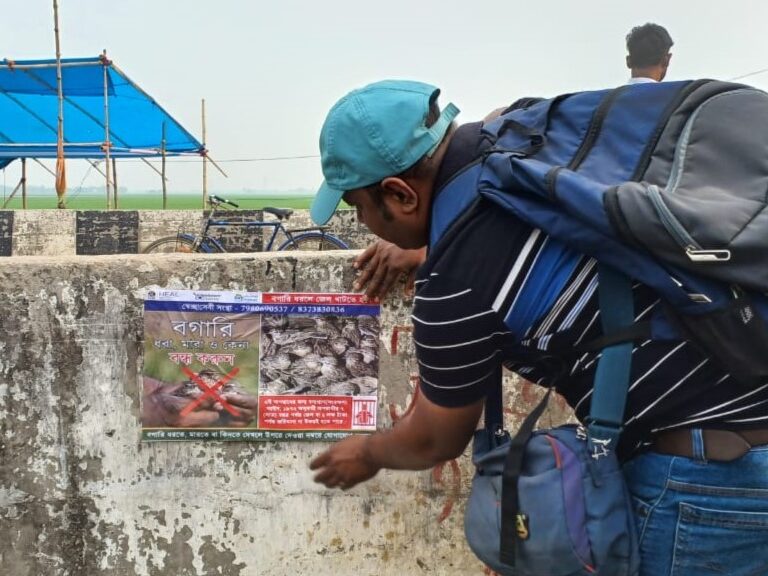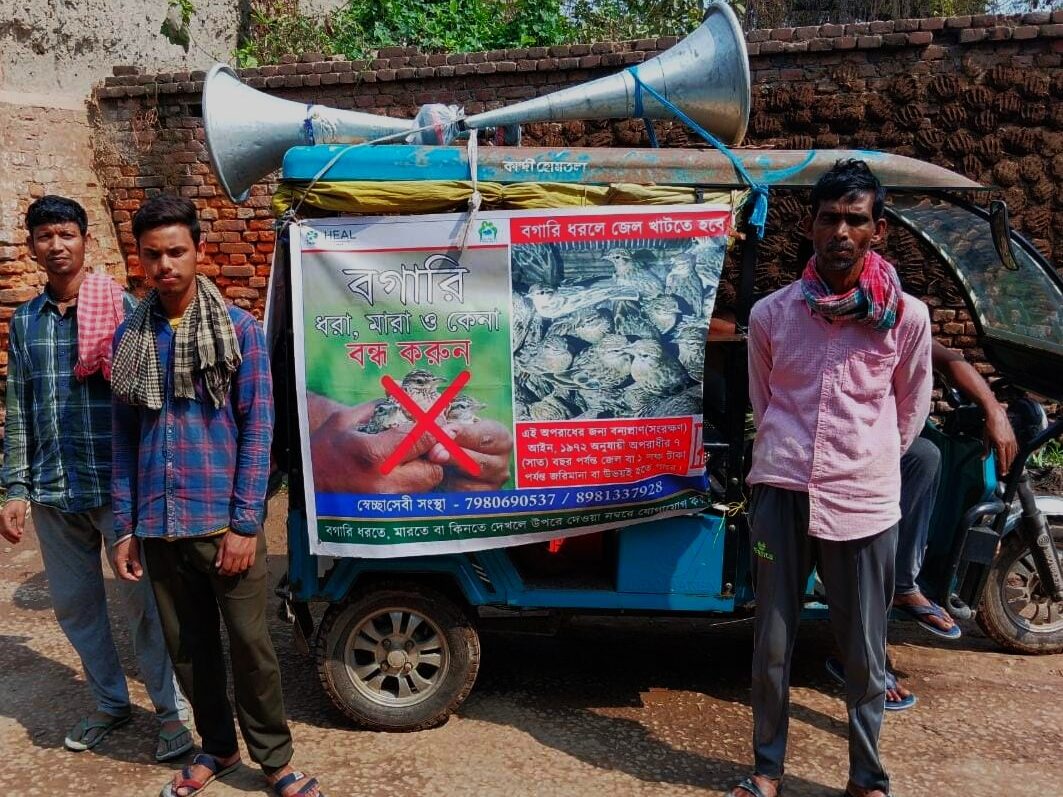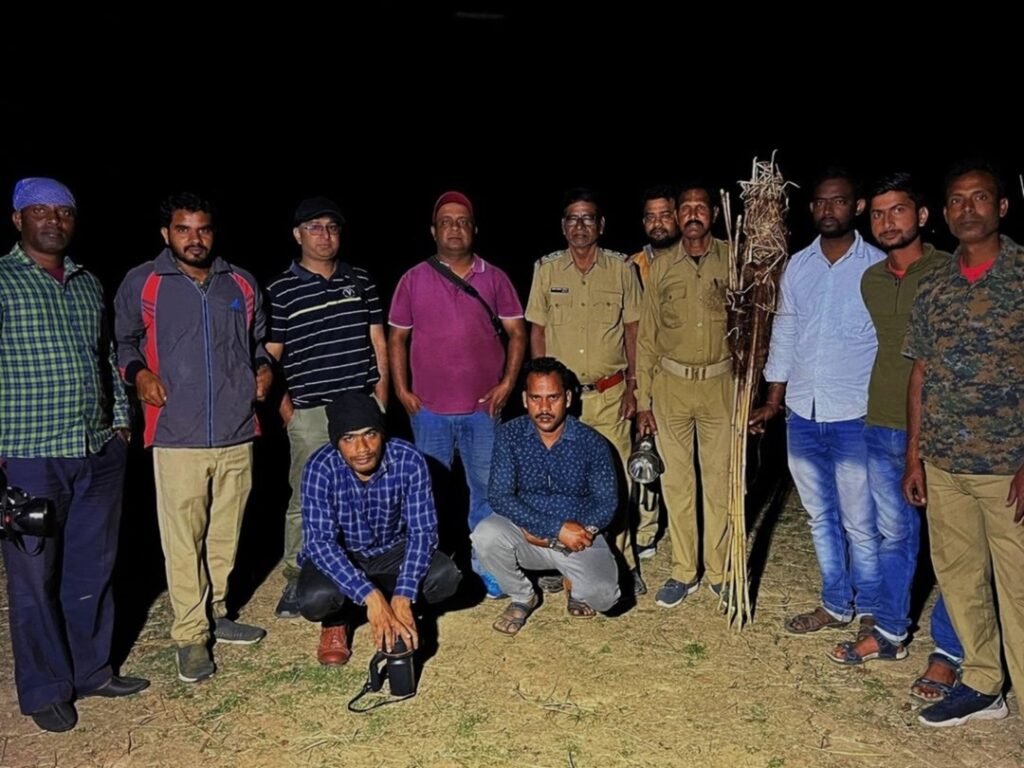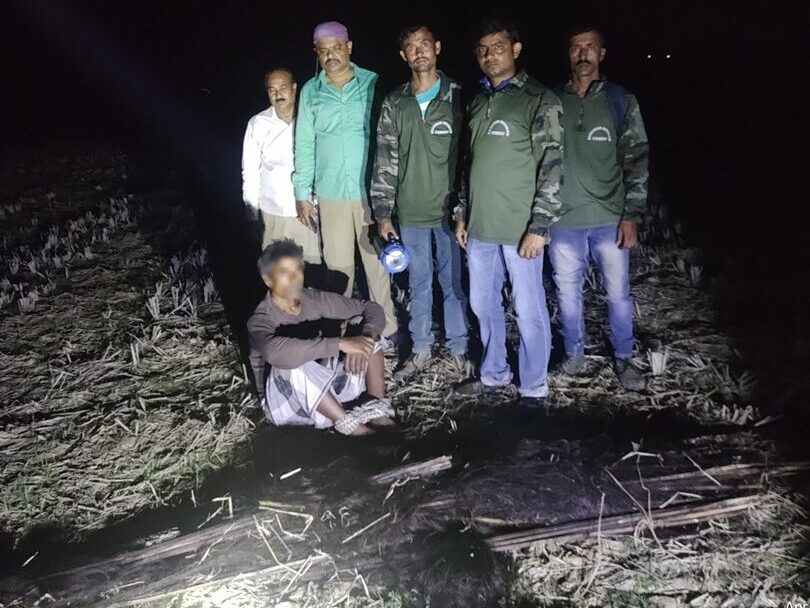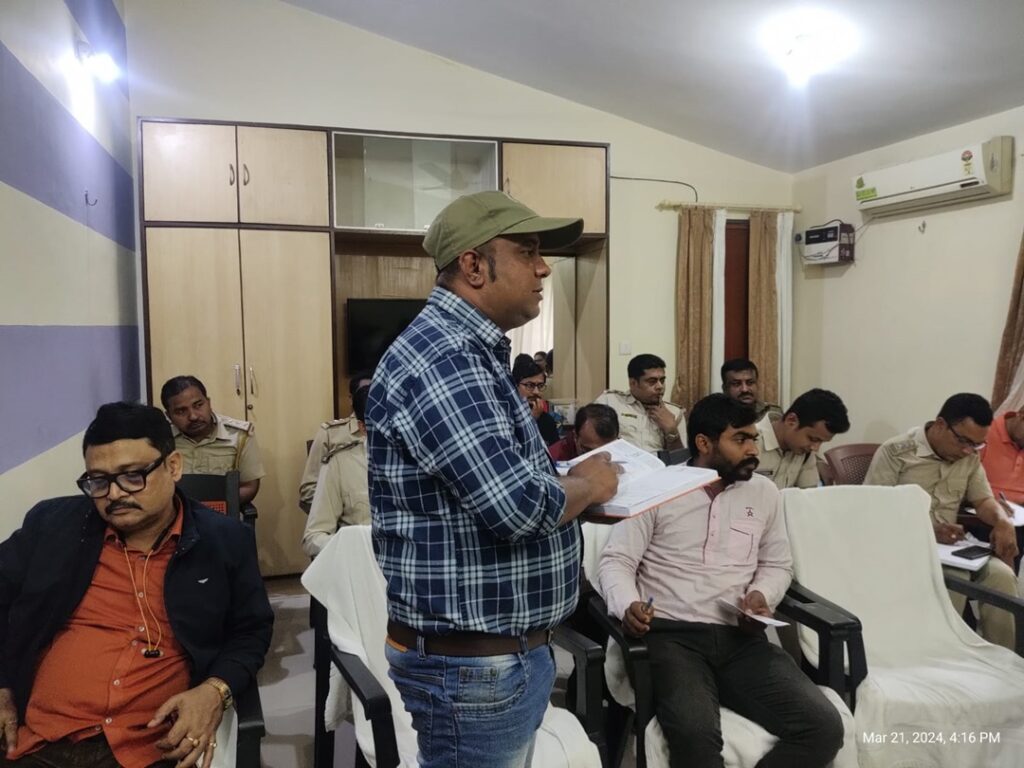Securing Safe Skies for Migratory Birds
Central West Bengal, with its expansive farmlands and wetlands, serves as a vital stopover for migratory birds fleeing the severe winters of Central Asia, Mongolia, and Russia. This ecologically rich zone, however, has tragically turned into a population sink due to rampant commercial poaching and illegal trade of migratory birds across Murshidabad, Birbhum, and East Bardhaman districts.
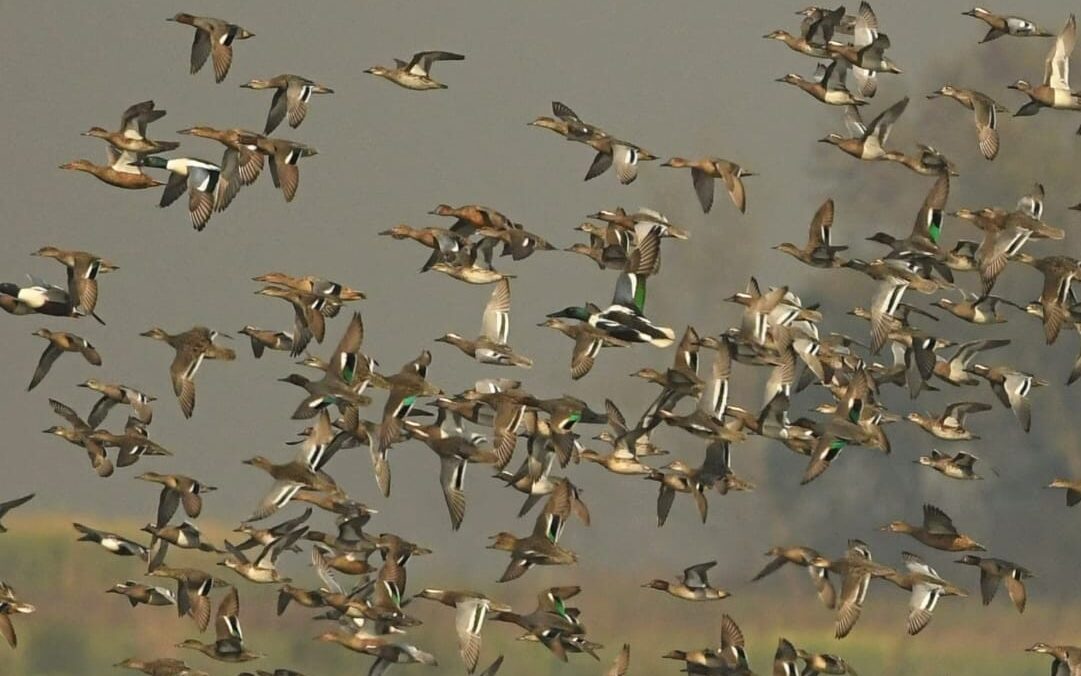
The Scale of the Crisis
The poaching season begins in October with the arrival of the first wave of migratory birds and extends until mid-April. It peaks between February and April, targeting passerines such as larks and pipits (locally known as Bogari), which roost in fallow agricultural fields. Unlike the poaching of waterbirds, the Bogari trade surpasses all others in scale and severity, with an estimated 1-1.5 lakh birds hunted each season.
Poachers use long bamboo poles to suspend mist nets across wetlands and farmlands, capturing birds en-masse. These nets are indiscriminate, ensnaring not just target species but a variety of other birds that perish in the traps. The effects of this large-scale poaching ripple across Central West Bengal’s avifauna, jeopardizing the survival of many non-target species and disrupting ecosystems.
The crisis is fueled by widespread ignorance of environmental laws and weak enforcement. Hunting and trading of wild birds are crimes under the Wildlife Protection Act, 1972, punishable by 3-7 years in jail and fines up to ₹25 lakhs. As a signatory to Convention on the Conservation of Migratory Species of Wild Animals (CMS), India is obligated to protect migratory birds, yet poachers in central West Bengal operate with impunity, exploiting community support and lack of awareness. This unchecked illegal trade, driven by demand for bird meat and inadequate government intervention, has been steadily decimating the region’s birdlife for several years.
HEAL’s Intervention
Recognizing the severity of this crisis, HEAL launched a multi-year project to combat bird poaching and protect migratory species. HEAL’s sustained efforts spanning across two migratory seasons between December 2022 and April 2024, led to the following impact:
Surveillance and Bird Rescue
HEAL’s field teams composed of local volunteers, maintain extensive surveillance over wetlands and agricultural fields across Murshidabad and Birbhum districts throughout the bird poaching season. They carry out regular patrols in known poaching hotspots to collect intel, thwart poaching attempts and facilitate enforcement against poachers. Key accomplishments from the past two migratory seasons include:
- Destruction of 100-120 kilometers of bird trapping nets
- Rescue of over 1,900 birds from nets belonging to 35 different species
- Collection of intel regarding poaching hotspots in East Bardhaman districts which was not known of until March 2024
Awareness and Community Engagement
HEAL undertakes consistent efforts to educate local communities about the ecological and legal implications of bird poaching during the migratory season:
- 26 permanent metal signboards have been installed across Murshidabad and Birbhum to highlight the penalties under the Wildlife Protection Act, 1972. The installations, sponsored by WTI in 2023 and the Birdwatchers’ Society in 2024, provide actionable information, including helpline numbers for reporting poaching activities.
- Daily anti-poaching campaigns are carried out which involve distribution of leaflets, posters, and loudspeaker announcements to reach a wide audience.
- Persistent outreach over the past two years through the aforesaid activities has been pivotal in shifting local residents’ apathy towards genuine concern for migratory bird conservation. Enhanced awareness among communities in poacher-dominated villages across 10 blocks of Murshidabad and Birbhum has prompted residents to take an active role in reporting poaching activities.
Law Enforcement
HEAL collaborates with enforcement authorities through multiple channels to orchestrate a comprehensive crackdown on bird poachers and dismantle the illegal bird trade in Murshidabad and Birbhum.
- Ground-Level Enforcement: Intel gathered from informant networks, covert field operatives, and local residents is relayed to the range forest office and local police station.
- These inputs have facilitated joint raids involving HEAL and enforcement officials, resulting in the unprecedented arrest of 11 habitual poachers over the past two migratory seasons.
- Local residents have informed reduced poaching activities in areas where arrests have taken place.
- High-Level Advocacy: Established by the Calcutta High Court in 2023 in seven districts of West Bengal in public interest litigation proceedings filed by HEAL before the aforesaid High Court, Humane Committees play a critical role in preventing hunting and poaching of wildlife. Each district-level committee is chaired by the District Judge and comprises key stakeholders, including the District Magistrate, Superintendent of Police, senior Forest Officers, senior officials from the Railway Protection Force, and HEAL’s Joint Secretary, Tiasa Adhya.
- During the meetings with Humane Committees in 2023, HEAL has been advocating for anti-poaching measures, resulting in stringent orders to enforce wildlife laws and protect critical habitats. This collaboration ensures consistent support from local enforcement officials for patrols and rapid responses to intel while leveraging the authority of senior government officials, such as the District Magistrate and Superintendent of Police, to drive decisive action against poachers and illegal traders.
- Additionally, the Humane Committees of Murshidabad and Birbhum have committed to launching extensive awareness campaigns to support HEAL’s outreach efforts in areas where lark hunting occurs, as well as locations involved in the sale or transport of lark consignments.

